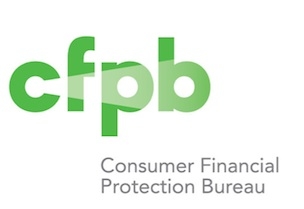Advertisement
CFPB Issues Report on Debt Collector Harassment

The Consumer Financial Protection Bureau (CFPB) issued a report on the more than 30,000 consumer complaints it has received about the debt collection market. The report finds that many consumers complain that they are being hounded by debt collectors about debts they do not owe. Top complaints also include debt collectors’ use of aggressive communication tactics and threats of illegal actions.
“Consumers should never be hounded about debts they do not owe,” said CFPB Director Richard Cordray. “We will not tolerate companies harassing consumers or threatening illegal actions in the debt collection market. We will continue to work hard to ensure that consumers are treated with dignity and fairness.”
Debt collection is a multi-billion dollar industry. It is estimated that there are more than 4,500 debt collection firms nationwide. Banks and other original creditors may collect their own debts or hire third-party debt collectors. Original creditors and other debt owners also may sell their debts to debt buyers. Debt buyers may sell the debt, collect the debt themselves, or hire third-party debt collectors to do so.
Approximately 30 million Americans had, on average, $1,400 of debt subject to collection in 2013. The main law that governs the industry and protects consumers is the 1977 Fair Debt Collection Practices Act (FDCPA). In 2010, the Dodd-Frank Wall Street Reform and Consumer Protection Act (Dodd-Frank) revised the FDCPA, making the bureau the first agency with the power to issue substantive rules under the statute.
Consumer Complaints
The Bureau began accepting debt collection complaints in July 2013. These complaints quickly became the largest source of complaints each month. The Bureau received 30,300 debt collection complaints between July and December 2013. Companies have already responded to about 82 percent of the complaints the Bureau has sent to them for a response in that time frame. The top three complaints were about:
►Collectors hounding consumers about a debt they do not owe: More than one-third of the complaints the CFPB handled were about a debt collector continually attempting to collect a debt that the consumer does not believe is owed. Of these complaints, almost two-thirds of consumers report that the debt is not theirs, while others report that the debt was paid, was the result of identity theft, or was discharged in bankruptcy.
►Aggressive communication tactics used by debt collectors: Nearly a quarter of the complaints received by the Bureau were about debt collectors using inappropriate communication tactics. More than half of those complaints cite frequent or repeated calls from a collector and often the collector is calling the wrong phone number. Consumers also complain about debt collectors calling their places of employment or collectors using obscene, profane, or abusive language.
►Taking or threatening an illegal action: About 14 percent of consumers report that a company is taking or threatening an illegal action. Most of these complaints are about threats to arrest or jail consumers if they do not pay. Other complaints relate to collectors threating to sue or attempting to seize property.
About the author





